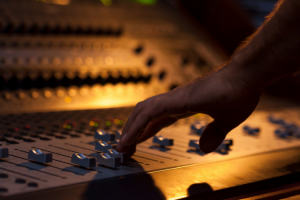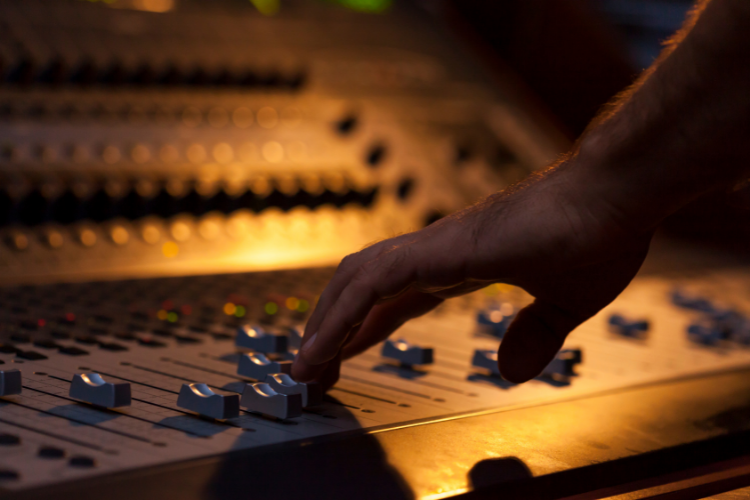Sound Engineering 101

Are you an audiophile? Or do you have an insatiable love of sound? A career as an audio engineer might be the approach for you. Learn what it takes to become an audio engineer.
Are you ready for a high-tech career? Do you have good listening skills to distinguish sounds and manipulate them? Finally, do you have the necessary interpersonal skills to work closely with clients and offer quality work?
What is Sound Engineering?
Sound Engineering refers to the full range of engineering and technical professions that exist in the music industry – concert and studio sound engineers, mixing and mastering engineers, acoustic designers, and systems engineers who design and install sound equipment in concerts, studios, concert venues, and movie theaters.
Audio engineers operate computers and electrical equipment to record, mix, and playback sound for a variety of entertainment media. They are responsible for the music and sounds that people regularly listen to on the radio, television, and the Internet.
These are people, whose names are rarely known to the general public, but artists’ success depends on their professionalism, and almost no process in the musical product production cycle can do without them. A sound engineer is a versatile specialist capable of organizing and providing technical solutions for any task encountered in today’s music industry.
Pros and cons of the profession
Pros:
- Rapid market development and demand in the long run.
- Creative profession, allowing to reveal inner potential.
- Refers to the category of highly paid specialties.
- As a rule, it is not connected with the observance of working hours. The main task – to meet the deadline for the delivery of the product.
Cons:
- Narrow specialty, which is difficult to find application in a wide range.
- Lack of clear objective criteria in assessing the quality of a sound design product.
- Requires from a specialist a large amount of natural data and skills.
- An almost free schedule makes such qualities as self-discipline and strength of character obligatory.
Important Qualities
A future professional who plans to develop in this field necessarily requires a set of the following essential qualities:
- A well-developed musical ear;
- Musical taste;
- The ability to understand musical genres and trends;
- Knowledge in the field of physics of sound, peculiarities of its propagation;
- Skills in working with a large number of modern audio editors and recording equipment;
- Out-of-the-box thinking;
- Effortfulness.
Education
Today’s realities are such that university education on a case of this subject is insufficient. Because of the outdated approach and technology, institutions of higher education produce specialists with significant gaps in areas. Therefore, in addition to specialized education at the institute or university professionals in this field recommend completing specialized courses and engaging in self-training.
As for self-education, there are lots of resources on the internet that provide illustrative and complex guides on all things music. By adding internet resources to your education routine you will learn how to work with software used by most professionals around the world, learn how to work with musical equipment, and acquire all the necessary knowledge and skills for successful development in the profession.
Also useful will be the passage of practice in the post-production studio as an intern. Here you can get experience, as well as professional evaluation by specialists and advice on areas that need to be tightened up.
